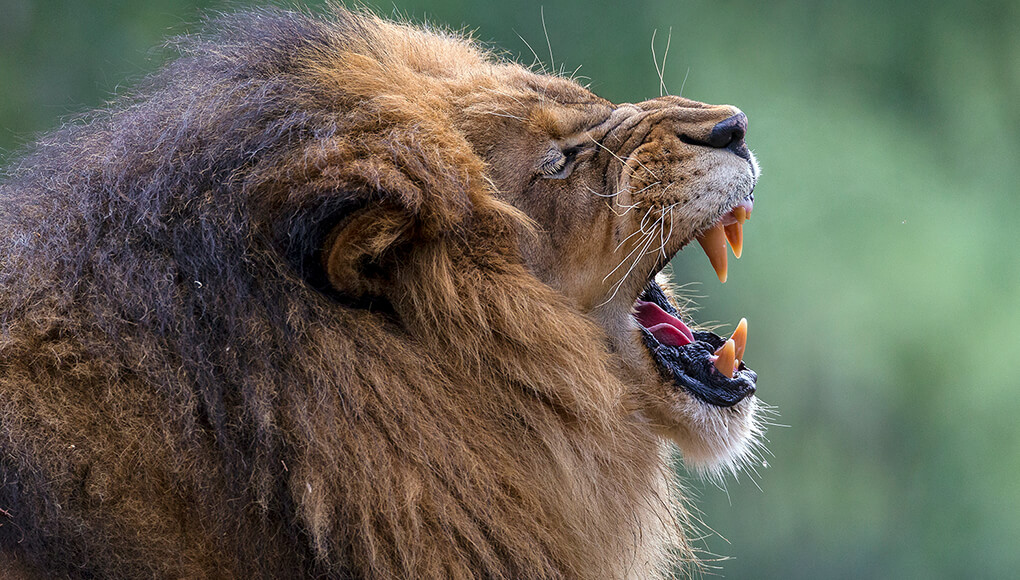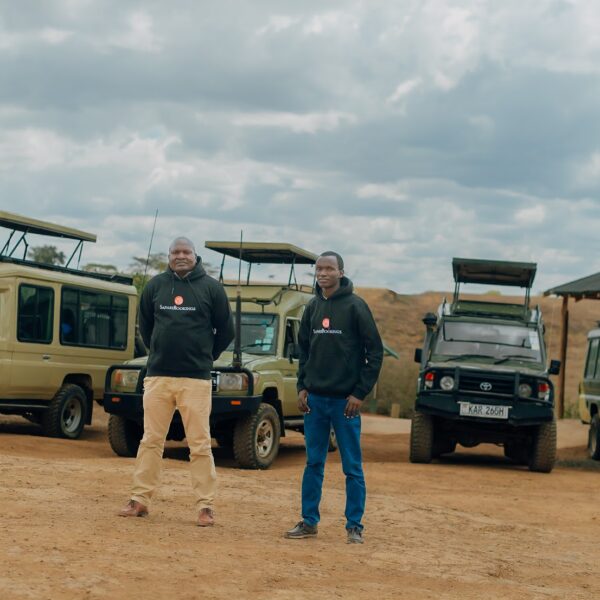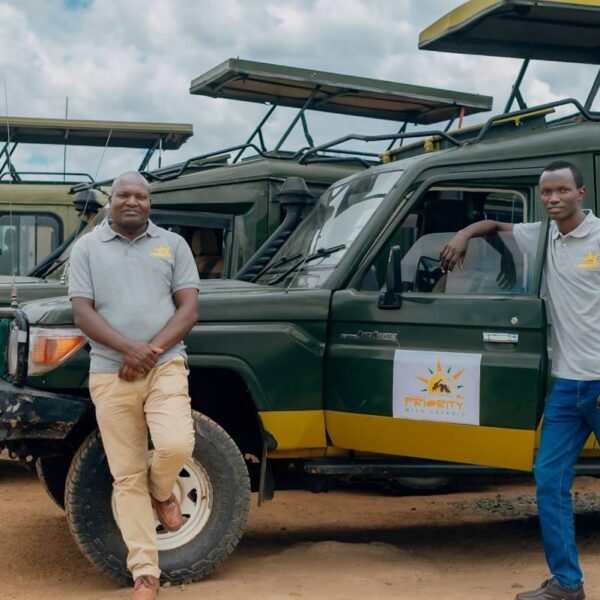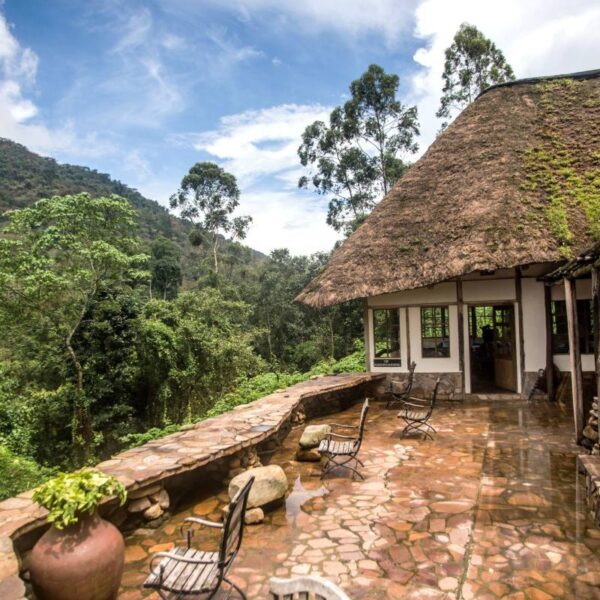Why Safety Matters on a Kenyan Safari
Safety isn’t just important; it’s crucial. When you’re in the wilds of Kenya, surrounded by majestic landscapes and powerful wildlife, being mindful of safety transforms your adventure into something extraordinary.
Imagine the thrill of spotting a lion or a herd of elephants. Exciting, right? But remember, these are wild animals, and their natural behavior can be unpredictable. Following safety guidelines helps you enjoy these moments without unnecessary risks. Being prepared enhances your safari. You don’t want unexpected surprises to ruin your fun. For families, it’s even more vital. Kids are naturally curious, and making sure they understand and follow safety rules keeps everyone safe and ensures a stress-free experience.
Knowing potential hazards is part of the adventure. Whether it’s staying inside the vehicle during game drives or keeping a safe distance from wildlife, these measures protect you and the animals. It’s about respecting the wilderness and acknowledging the power of nature.
Why does safety matter? Because it allows you to fully immerse yourself in Kenya’s beauty without worry. It’s about creating unforgettable memories in a safe, controlled environment, ensuring every moment is as magical as you imagined.
Essential Safety Measures for Your Safari
Safety’s key for an unforgettable safari. Follow these essential tips to ensure a safe and enjoyable adventure.
- Listen to Your Guide: Our guides are They know the terrain, animal behavior, and what to do in any situation. Always follow their instructions.
- Walk in Single File: This simple rule can prevent accidents. It’s easier for guides to keep
track of everyone and ensures no one strays into unsafe areas.
- Don’t Touch Anything Unfamiliar: East Africa’s wilderness is full of wonders, but not everything is safe to Plants and insects can be harmful. If in doubt, ask your guide.
- Stay Inside the Vehicle: During game drives, remain in the vehicle unless instructed
otherwise. It’s the safest place to be when observing wildlife.
- Keep a Safe Distance: Animals are unpredictable. Respect their space and don’t get too
close. Your guide will ensure you get great views without compromising safety.
- Wear Appropriate Clothing: Neutral colors help you blend into the Avoid bright colors which can attract unwanted attention from wildlife.
- Hydrate and Protect Yourself: Bring water and The African sun can be intense, and staying hydrated is crucial.
- Be Aware of Your Surroundings: Always stay Listen for any unusual sounds and keep an eye on the group.
For more insights into the diverse safari and travel experiences we offer across Kenya, Tanzania, and Uganda, including key destinations like the Masai Mara and Amboseli National Park, visit our Experiences page.
Our guides are trained to handle various situations. Trust in their expertise and enjoy the adventure.
What to Pack for Safety and Comfort
Packing right ensures everyone stays safe and comfy during your safari. Here’s what to bring:
- Closed-Toed Shoes: Essential for walking through bushy areas and protecting your feet from rough terrain.
- Long Pants: Helps avoid scratches and insect Lightweight, breathable fabrics are best.
- Long-Sleeved Shirts: Shields your arms from the sun and pesky Opt for neutral colors to blend in.
- Hat: A wide-brimmed hat provides crucial sun protection for your face and
- Sunglasses: Protect your eyes from the intense African
- Sunscreen: High SPF is a Apply frequently to avoid sunburn.
- Camera: Capture those unforgettable Make sure it’s charged and has extra memory cards.
- Water: Staying hydrated is Bring a refillable water bottle.
- Optional Items:
- Binoculars: Enhance wildlife viewing from a
- Insect Repellent: Keeps bugs at bay, ensuring a more comfortable
- First Aid Kit: Handy for minor cuts or
Proper attire and gear make a huge difference. They protect you from the elements and let you fully enjoy the experience. Think of it as prepping for an adventure where comfort and safety go hand in hand. For more tips on how to make the most of your safari, explore our popular safari itineraries, including the Big Cat Safari and Classic African Safari, which highlight encounters with iconic wildlife and stunning landscapes across Kenya and Tanzania.

Transport Tips and Safety
Navigating Kenya safely is key for a smooth safari experience. Here are some tips and insights to help you move around efficiently.
In major cities like Nairobi, ride-hailing services such as UBER are available. They’re convenient and usually safe. Outside of these areas, you’ll need to rely on taxis. Always agree on the fare before starting the journey to avoid misunderstandings.
Travel between safari destinations often involves bush planes. These small aircraft are the best way to hop between national parks and reserves. Typical routes might include flights from Nairobi to the Masai Mara or Amboseli. Layovers are common, so pack some patience along with your luggage.
Speaking of luggage, bush planes have strict weight limits. Usually, it’s around 15 kg per person, including hand luggage. Soft-sided bags are preferred due to limited cargo space.
When you arrive at airstrips, pre-arrange car transfers to your lodge or camp. It ensures you’re met by a guide and transported safely. Our team handles these arrangements seamlessly, so you don’t have to worry. For a seamless experience, consider our 7-day Kenya Flying Safari that includes transfers from Nairobi to Meru National Park, Samburu, and Masai Mara.
- Use Ride-Hailing Services: Available in Nairobi and other big Outside these areas, rely on taxis.
- Negotiate Taxi Fares: Always agree on the price before your trip
- Bush Plane Travel: Efficient for moving between Expect layovers.
- Adhere to Luggage Allowances: Bush planes have strict weight Soft-sided bags are ideal.
- Arrange Car Transfers: Pre-arrange transfers from airstrips to your destinations.
Following these tips ensures you travel safely and efficiently, allowing more time to enjoy the stunning landscapes and wildlife.
Staying Safe with Drinking Water
Drinking water safety’s crucial for your safari. Most hotels provide bottled water for drinking and brushing your teeth. Tap water might upset your stomach if you’re not used to it, so it’s best to avoid it.
Kids are more vulnerable to water-borne illnesses. Keeping them hydrated with safe water is essential. Always have bottled water on hand during your adventures.
Brushing your teeth with bottled water might seem like overkill, but it’s a simple step to avoid
any unpleasant surprises. Better safe than sorry!
When out on game drives or exploring, carry enough bottled water for everyone. The African sun can be intense, and staying hydrated keeps everyone in good spirits.
Even ice cubes can be a source of contamination. Stick to drinks without ice unless you’re sure it’s made from bottled water.
Some lodges, like Katara Lodge in Queen Elizabeth National Park, offer water purification systems. Check with your accommodation, but when in doubt, bottled water’s the safest bet. Taking these precautions ensures you can focus on the incredible wildlife and stunning landscapes without worrying about health issues. Stay hydrated, stay safe, and make the most of your unforgettable safari adventure.
Health and Vaccination Tips
Your health matters on a safari. Being prepared ensures you can enjoy every moment without worry.
Before heading to Kenya, check if you need the Yellow Fever vaccine. Some countries require proof of vaccination if you’ve been in a Yellow Fever risk area. Plan ahead, as some vaccines need time to become effective.
Other recommended vaccines include Hepatitis A, Hepatitis B, Typhoid, and Tetanus. Consult with your doctor about your travel plans for personalized advice.
Malaria’s a concern in many parts of Kenya. Preventative medication is crucial. Discuss options with your healthcare provider. Use insect repellent and sleep under mosquito nets at night. Here are some key health tips:
- Vaccination Check: Ensure you’re up-to-date with required and recommended
- Malaria Prevention: Take prophylactics and use insect
- First Aid Kit: Pack basics like band-aids, antiseptic wipes, and pain
- Personal Medication: Bring enough of any prescription meds you
- Travel Insurance: Essential for covering unexpected medical
Drinking water safety’s crucial. Stick to bottled water for drinking and brushing your teeth. Avoid ice cubes unless you’re sure they’re from purified water.
At lodges, food hygiene is usually excellent, but it’s wise to eat well-cooked meals. Stay hydrated, especially under the African sun.
For those planning a tailor-made safari, we provide personalized itineraries that cater to your health and comfort needs. Taking these precautions ensures a healthy and enjoyable safari.
Prepare well, and you’re set for an unforgettable adventure.
Electrical Plugs and Voltage
Understanding electrical plugs and voltage is key to a smooth safari experience. In Kenya, Type G plugs are used, with a voltage of 240 V and a frequency of 50 Hz. Tanzania uses both Type D and Type G plugs, with a voltage of 220 V and a frequency of 50 Hz.
If you’re coming from countries with different voltage standards, such as the U.S., where the standard voltage is 120 V, you’ll need a converter or adapter. This ensures your devices work correctly and safely without any issues.
Converters change the voltage of your device to match the local supply, while adapters only allow your plug to fit into the local socket. It’s crucial to check if your electronics are dual voltage. If they’re not, a converter is a must.
Packing a universal travel adapter is a smart move. These adapters come with multiple plug types, making them versatile for international travel. They’re compact and easy to carry, ensuring you’re prepared for any socket type you encounter.
Many lodges and camps offer charging stations or outlets compatible with various plug types. For those planning to stay in Kenya, you can explore the diverse range of lodging options available, from luxurious safari lodges to tented camps, by visiting our page on Kenya Accommodations. However, having your adapter ensures you can charge your devices in your room without any hassle.
Being prepared with the right electrical equipment keeps your devices running smoothly. It’s one less thing to worry about, letting you focus on the incredible experiences and sights of your safari.
Recap and Final Thoughts
Staying safe on your safari in Kenya is essential for an unforgettable experience. Safety ensures you can fully immerse yourself in the adventure without worry.
First, always follow your guide’s instructions. They’re the experts and know how to keep you safe. Listen to their advice and enjoy the journey.
Pack wisely. Bring essentials like closed-toed shoes, long pants, and sunscreen. These items protect you from the elements and keep you comfortable throughout your trip.
Health is paramount. Ensure you’re up-to-date on vaccinations and take malaria prevention seriously. Carry a first aid kit and enough personal medication. Stick to bottled water for drinking and brushing your teeth to avoid any water-borne illnesses.
Transport safety is key. Use ride-hailing services in cities and pre-arrange transfers from airstrips. Understand luggage limits for bush planes and pack accordingly.
Electrical needs shouldn’t be overlooked. Bring a universal travel adapter and check if your devices are dual voltage. This ensures you can charge your gadgets without any hassles.
By following these tips, you’ll be well-prepared and can focus on creating amazing memories with your family. Enjoy the stunning landscapes, incredible wildlife, and unique cultural experiences that Kenya has to offer.
Stay vigilant, stay prepared, and embrace the adventure. Your safari awaits!



